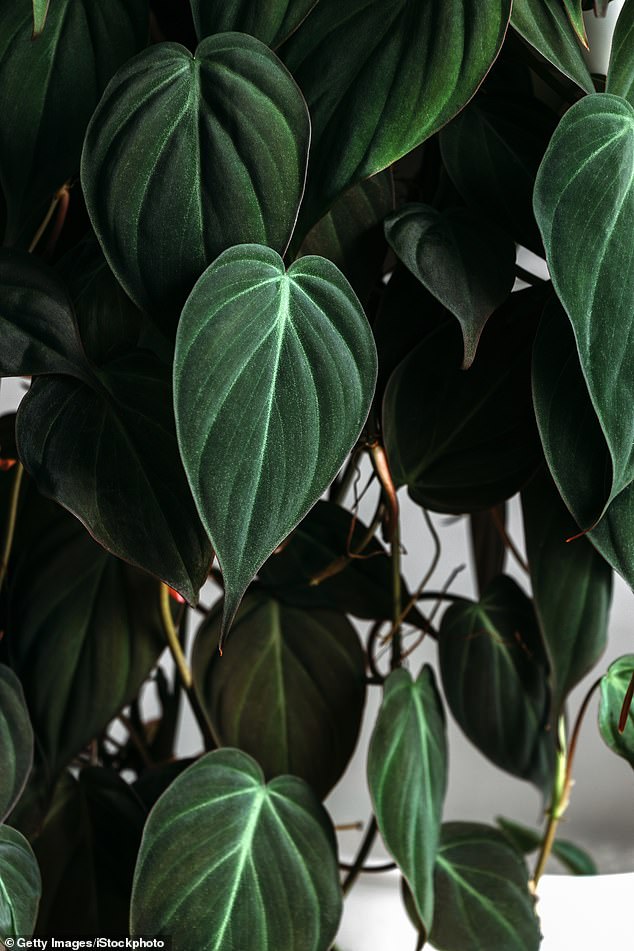While many people wish to have a variety of houseplants to brighten up the interior of their homes, there are some that could prove deadly to your beloved pets.
A leading pet health expert has warned of the potential danger common houseplants pose to the lives of dogs and cats.
Emily Boardman, a veterinary consultant and nutritionist at Burns Pet Nutrition, says dogs and cats can become seriously ill and even die after coming into contact with these toxic plants.
Continue reading below as Emily shares five common houseplants that can be toxic to cats and dogs.
Velvetleaf Philodendron (Philodendron Micans)
Velvet-leaf philodendron (Philodendron micans) can cause very severe and rapid reactions in pets, particularly in dogs where its consumption can be fatal (Archive image)
The velvet-leaf philodendron (Philodendron Micans) is a hanging plant that features beautiful heart-shaped leaves.
However, these plants can cause very serious and rapid reactions in pets, especially dogs, where their consumption can be fatal.
If a dog ingests a larger quantity of these leaves, it may suffer serious respiratory and digestive problems that may even end its life.
In addition to potentially killing your dog, these plants can also cause seizures, kidney failure, and coma.
Swiss cheese plants (Monstera deliciosa)
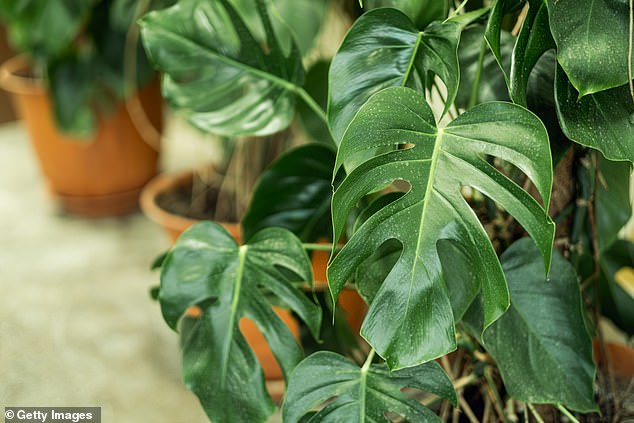
Swiss cheese plants (Monstera Deliciosa) can cause inflammation of a cat’s airways (File image)
Swiss cheese plants (Monstera Deliciosa) are popular for their large, distinctive leaves, but they contain insoluble calcium oxalate crystals, which can cause swelling in the tissue of a pet’s mouth.
Cats tend to lick objects more regularly, meaning these plants often pose a greater and more common threat to felines, although they are also toxic to dogs.
Fortunately, most cats are naturally put off by their poor taste and therefore tend not to consume enough for serious effects to occur.
However, these plants cause inflammation of the cat’s respiratory tract. Even if there are no fatal complications, the cat may suffer a lot of pain after trying the plant, as other unpleasant side effects such as bloating and vomiting may also occur.
Snake plant (Sansevieria)
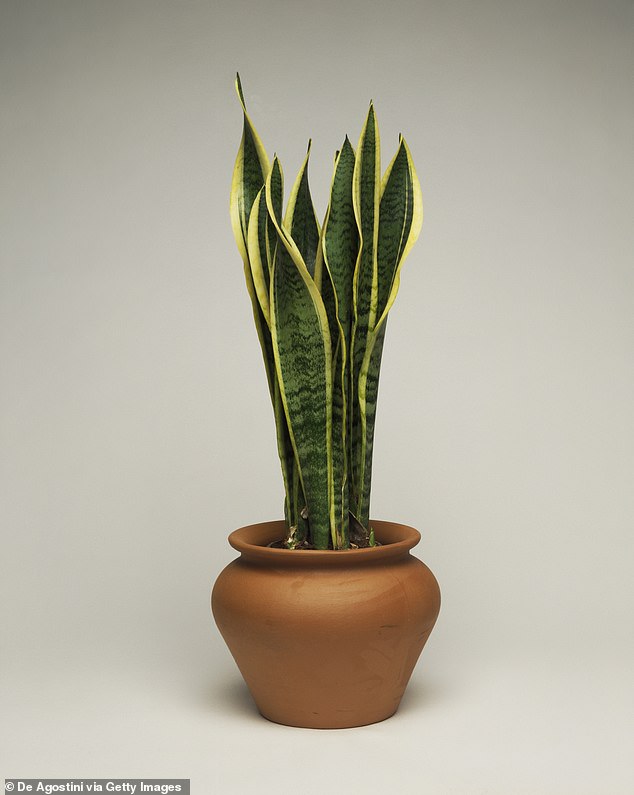
Snake plant (Sansevieria) contains toxic substances known as saponins, which can cause inflammation, irritation, nausea and vomiting in cats (Stock image)
The snake plant (Sansevieria) is known as one of the easiest plants to care for because it “thrives on neglect” and only needs watering once every two weeks, but choosing to purchase one could mean you’re inadvertently neglecting your pet.
This is because the plant contains toxic substances known as saponins, a unique molecular structure that allows them to interact with lipids, essential components of cell membranes.
These saponins can cause inflammation, irritation, nausea, vomiting, diarrhea and other adverse effects when they come into contact with your pet’s gastrointestinal tract.
ZZ Plant (Zamioculcas zamiifloia)
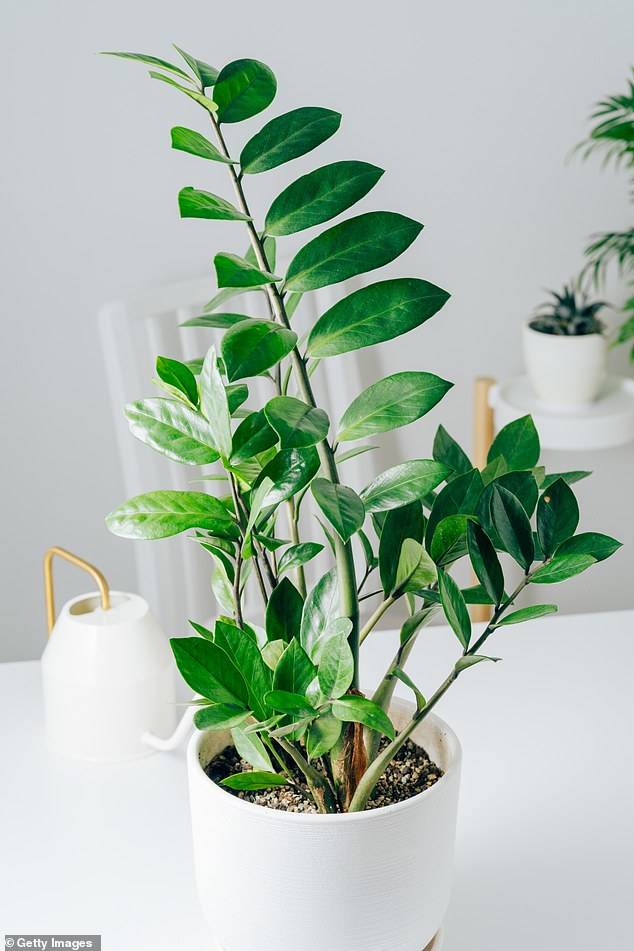
Despite being among the easiest plants to maintain, ZZ plants (Zamioculcas zamiifloia) must be handled with care because they are toxic to both humans and their pets (Archive image)
Despite being one of the easiest plants to maintain, ZZ plants (Zamioculcas zamiifloia) must be handled with care because they are toxic to both humans and their pets.
Plants can cause diarrhea, vomiting and severe mouth irritation in dogs and cats.
The presence of calcium oxalate and saponins in the plants also means that they are toxic to humans and should be handled with gloves.
They can cause skin irritation and pain if ingested.
Lilies (lilium)
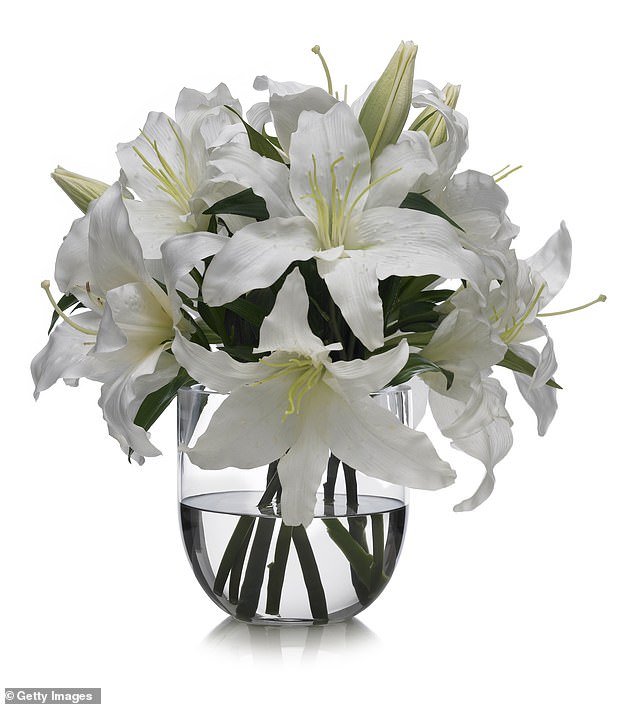
Lilies are extremely dangerous for cats if ingested because they contain toxins that can cause serious kidney damage (Archive image)
Lilies (lilium) are very attractive plants to have in the home because of their air-purifying qualities: they can greatly improve the owner’s breathing.
However, lilies are extremely dangerous for cats to ingest because they contain toxins that can cause serious kidney damage, which in some cases can be fatal.
Lilies can also cause stomach pain in dogs, although they generally have a higher resistance to their toxins.
Ms Boardman says: ‘Pet owners should be extremely careful with houseplants in their homes and be aware of those known to be toxic to their four-legged friends.
‘Generally, cats tend to lick plants, while some dogs in the wild will eat anything they see, which unfortunately can have fatal repercussions.
‘My advice would be to do extensive research before purchasing any houseplant.
‘As an extra precaution, I would try to keep all plants out of reach of your pets.
‘There are many pet-friendly plants, such as Calathea Majestica, Ceropegia, Beaucarnea Recurvata, and the Fishbone Cactus (Epiphyllym Anguliger), which are non-toxic.
‘If you believe your pet has been negatively affected by a toxic plant, contact a veterinarian as soon as possible.’
(tags to translate)dailymail

